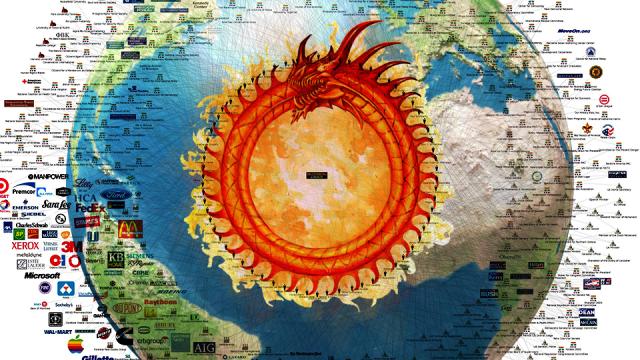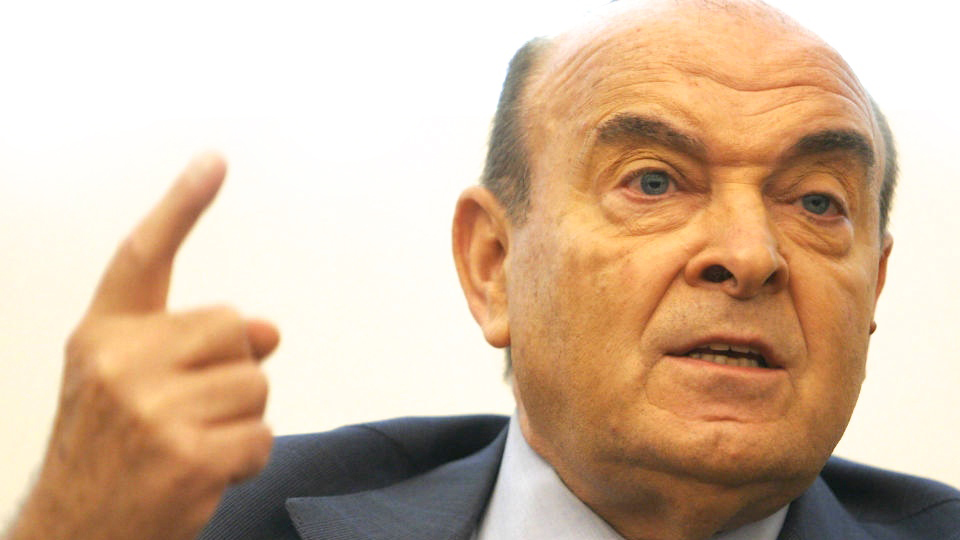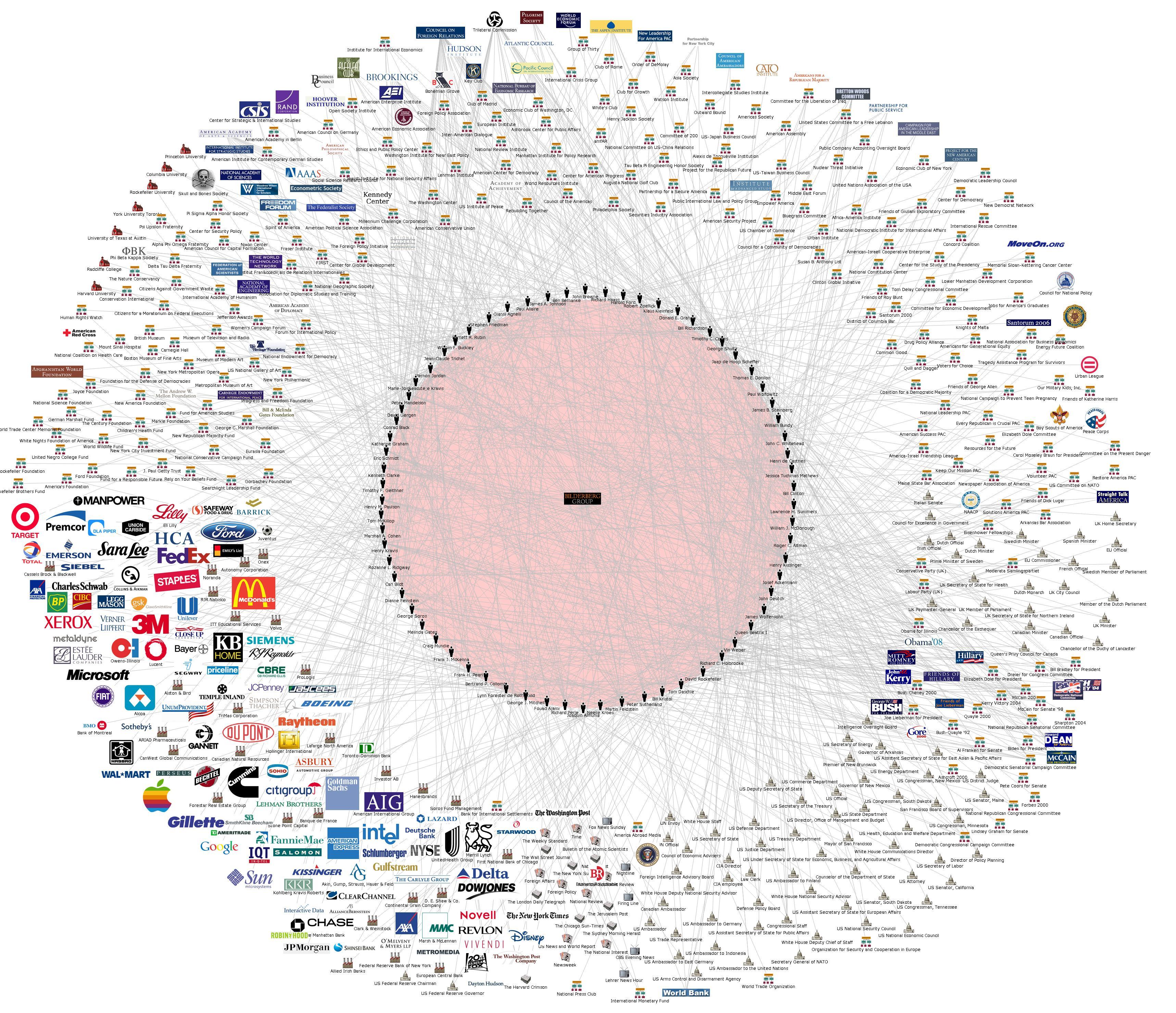
Following parts one, two and three of the Global Power Project's Group of Thirty series, this fourth and final installment focuses on a few of the G30 members who have played outsized roles both in creating and managing various financial crises, providing a window on to the ideas, institutions and individuals who help steer this powerful global group.
The Assassin of Argentina
Prior to 2008, one of the most notable examples of a highly destructive financial crisis took place in Argentina which, heavily in debt, faced a large default and was brutally punished by financial markets and the speculative assault of global finance, otherwise known as "capital flight." Less known in the story of Argentina’s 1998 to 2002 economic catastrophe was the significant role played by just one man: Domingo Cavallo.
A longtime member of the Group of Thirty, Cavallo formerly served both as Governor of the Central Bank and Minister of Economy in Argentina. He has been referred to by Pulitzer Prize-winning economic researcher Daniel Yergin as “one of the most influential figures in recasting the relationship of state and marketplace in Latin America.”
Between 1976 and 1983, Argentina, ruled by a ruthless military dictatorship, was marred by excessive human rights abuses and persecution of intellectuals and dissidents during the so-called "Dirty War" in which as many as 30,000 people were killed or disappeared. The terror was reminiscent of nearby Chile, where a coup that brought dictator Augusto Pinochet to power in 1973, with the help of the CIA, provided a petri-dish experiment in the implementation of neoliberal "reforms." It was Chile’s dictatorship that set the example, and Argentina’s soon followed.
In a 2002 interview, Domingo Cavallo noted that, “The experience of Chile during the '80s was very instructive, I think, for most Latin American economies, and many politicians in Latin America, because Chile was successful by opening up and trying to expand their exports and in general their foreign trade and getting more integrated into the world economy... And of course we used, particularly here in Argentina, the experience of Chile to go ahead with our own reforms.”
Asked about the association between economic "reforms" in Chile and the ruthless dictatorship that implemented them, Cavallo explained, “There were discussions on the feasibility of implementing market reforms in a democracy. But in 1990... the first democratic president after Pinochet maintained the reforms and also tried to improve on them [and] it was demonstrated that itwould be possible to implement similar reforms under a democratic regime.”
What specific reforms was Cavallo referring to? Under Argentina's military dictatorship, Cavallo served for one year as Governor of the Central Bank in 1982, where he was responsible for implementing a state bailout of corporations and banks. After, Cavallo returned to academic life. But all that changed with the election of Carlos Menem in 1989, who served as president until 1999. In 1991, Menem appointed Cavallo as Minister for Economy, a position he held until 1996.
Cavallo led the neoliberal restructuring of Argentina: pegging the Argentine peso to the U.S. dollar, trying to reduce inflation, undertaking massive privatizations while opening up the economy to “free trade,” and deregulating financial markets. The New York Times in 1996 heaped praise on Cavallo for his “constructive” role in leading the economy “back to vitality and international respectability,” despite the fact that his reforms “brought high unemployment and painful reductions in social programs.”
Another NYT article credited Cavallo for the “stability” brought to Argentina through his “economic miracle,” while noting, without irony, that Cavallo’s miracle had “left million of Argentines... without a safety net” and with record-high unemployment, the emergence of urban slums, abandoned street children, over-crowded food banks, homeless shelters in churches, and even some people who were forced to eat cats in desperation. The "miracle” was so great, in fact, that despite all of the so-called stability it facilitated, President Menem ultimately dismissed Cavallo to the jubilation of tens of thousands of protesters in the streets. Though the people were pleased, financial markets expressed their disapproval.
With multiple economic and financial crises erupting around the world and in neighboring nations, Argentina, which pegged its currency to the U.S. dollar, found it could no longer compete. The touted neoliberal reforms were taking a toll as the country plunged into recession. Menem was replaced in 1999 by President Fernando De la Rua, who quickly sought support from the IMF to help repay the country’s debts owed to foreign – largely American – banks.
But Cavallo wasn't out. In 2001, he was re-appointed as the country's Minister of Economy just in time to receive emergency powers enabling him handle the country’s ongoing financial crisis that he helped to create. At that point, financial markets felt Argentina could not be trusted to repay its debt and the IMF refused to provide further loans, on the basis that the country had not implemented enough neoliberal reforms to meet its demands. The economy crashed and the “much-hated” Cavallo had to resign, as did the President, who fled by helicopter from the Casa Rosada as Argentines protested en masse.
Even the Federal Reserve Bank of San Francisco noted in 2002 that there was “some truth” to the view that “Argentina’s debt position would have been sustainable if only market uncertainty had not triggered a crisis." But, it added, had Argentina made the effort asked of it to reduce its debt, it could have avoided “potentially destabilizing shifts in market sentiment."
America’s Crisis-Causers
The role played by former Federal Reserve Chairman Alan Greenspan in creating the conditions that led to the 2008 global financial meltdown is known to many. What is less known is that Greenspan, too, is a former member of the Group of Thirty. Greenspan did not work alone, of course, in his efforts to deregulate the financial system and spur the growth of the derivatives markets, which laid the groundwork for the worst financial crisis in modern times. Larry Summers, who then served as deputy secretary and later Secretary of Treasury under Bill Clinton, was also very helpful in this regard. Summers, too, is a current member of the Group of Thirty.
Currently serving as President Emeritus and as a professor at Harvard University, Summers was the former director of President Obama’s National Economic Council from 2009 to 2011. Previously, he was President of Harvard (2001 to 2009) and, prior to his positions during the Clinton administration he was Chief Economist at the World Bank (1991 to 1993). Currently, Summers is a member not only of the G30 but of the Council on Foreign Relations, the Trilateral Commission, and he was also a member of the Steering Committee of the Bilderberg Group.
While Chief Economist at the World Bank, Summers signed an infamous 1991 memo in which it was suggested that rich countries should dump their toxic waste and pollutants in the poorest African nations — because by the time the toxins spurred the growth of cancer in the local population, they would already statistically be dead due to already high mortality rates. The memo noted: “I think the economic logic behind dumping a load of toxic waste in the lowest wage country is impeccable and we should face up to that.”
When Summers later went to work for the Clinton administration under Treasury Secretary Robert Rubin, he along with Rubin and Fed Chairman Greenspan formed the "Three Marketeers," as Time referred to them, dedicated to “inventing a 21st century financial system” where they placed their “faith [in] financial markets.”
In the final two years of the Clinton presidency, Summers served as the Treasury Secretary alongside his deputy and protégé, Timothy Geithner, another member of the G30 who would go on to make a mark on the financial crisis — largely by convincing President Obama to bail out the Wall Street banks that crashed the economy, with zero penalty to them. Under the Obama administration, Summers served for nearly two years as Chair of the National Economic Council and was a highly influential policymaker. In 2009, he had spoken at the highly influential ultra-conservative think tank, the Peterson Institute for International Economics, where he explained the administration’s approach to the economic recovery, noting that, “Our approach sought to go as much as possible with the grain of the market” as opposed to regulating markets.
When Summers left the Obama administration in late 2010, he returned to Wall Street and made a fortune working for the hedge fund D. E. Shaw & Co. and Citigroup. This past summer, he was considered Obama’s favorite pick to replace Ben Bernanke as Fed Chairman, but faced such stiff opposition within the Democratic Party that he withdrew his name, leaving Janet Yellen – the Vice Chair of the Fed and herself a former member of the Group of Thirty – to step in.
What we see, in this analysis of the Group of Thirty, are the connections between those in positions of power to respond to and manage economic and financial crises, and those in positions of power who created such crises. Naturally, as well, the G30's membership includes numerous bankers who, as fortune had it, shared handsomely in the profits of those crises. Put simply, the G30 can be thought above all as an exclusive club of financial crisis kingpins. And it is a club, no doubt, that will continue to play a significant and not altogether helpful role in global financial management for years to come — or until something is done to stop them.
Andrew Gavin Marshall is a 26-year-old researcher and writer based in Montreal, Canada. He is project manager of The People’s Book Project, chair of the geopolitics division of The Hampton Institute, research director for Occupy.com’s Global Power Project and the World of Resistance (WoR) Report, and hosts a weekly podcast show with BoilingFrogsPost.
3 WAYS TO SHOW YOUR SUPPORT
- Log in to post comments













